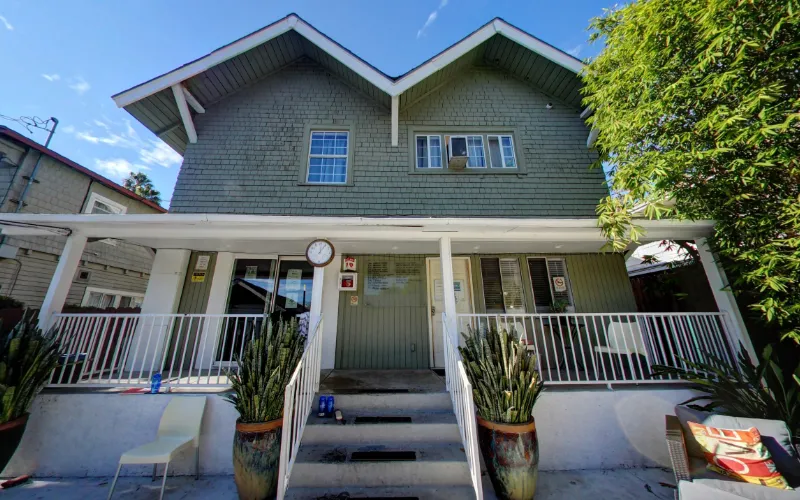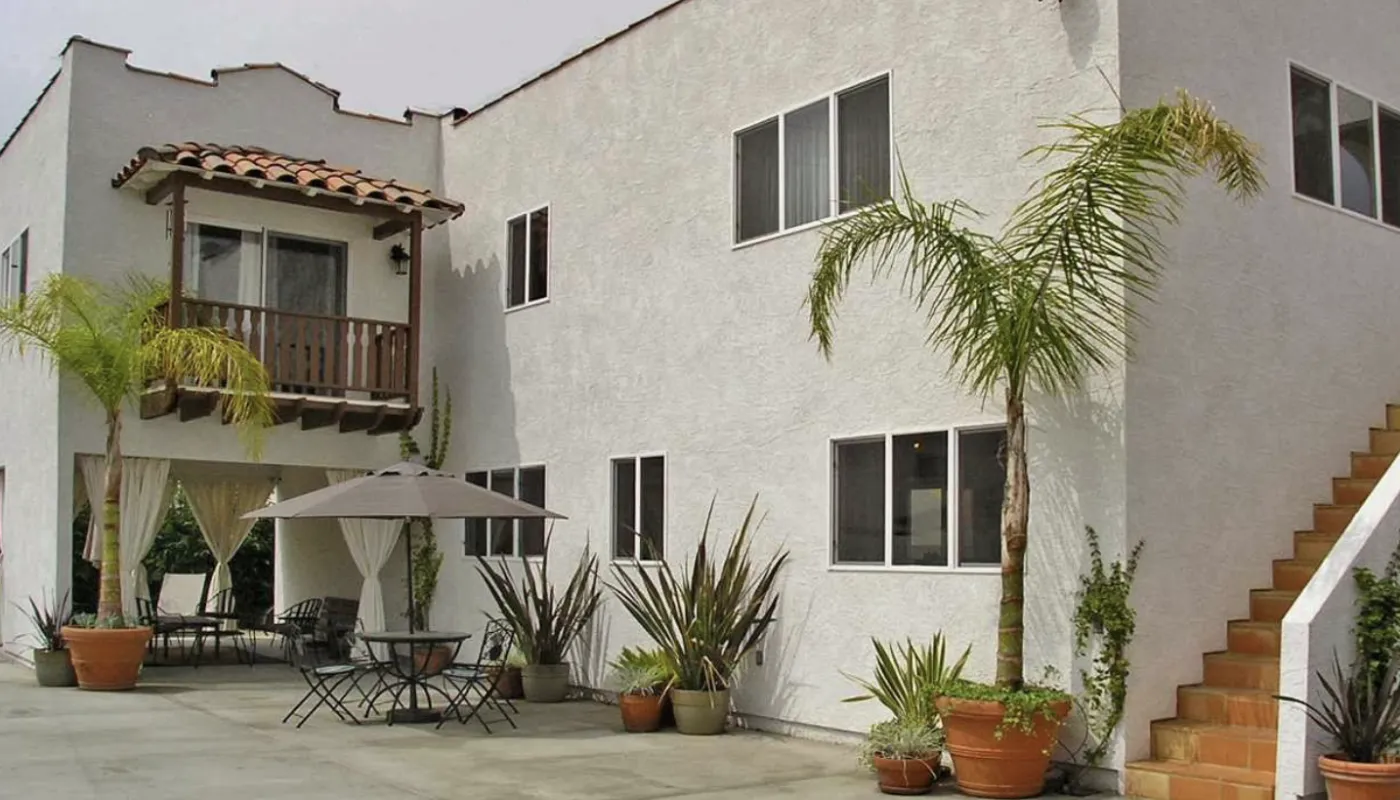Explore leading LSD rehab centers and treatment facilities in Los Angeles and nearby areas. LSD addiction treatment programs offer specialized care to address dependency and manage the psychological effects of hallucinogen use. Through evidence-based therapy, emotional stabilization, and holistic approaches, individuals receive the support needed to rebuild mental health, develop healthy coping strategies, and restore a sense of clarity. Find the best LSD rehab centers dedicated to helping individuals achieve lasting recovery and a balanced, substance-free life.
Ads
More Info
Advertisement Disclosure
Our website is funded by advertisers who pay for prominently labeled placements.
Read More93 Rehab Centers were found
Filters
Locations
- Los Angeles(+98)
- Culver City(+14)
- Westlake Village(+13)
- Woodland Hills(+11)
- Beverly Hills(+10)
- Santa Monica(+9)
- Sherman Oaks(+7)
- West Hollywood(+6)
- Malibu(+5)
- Chatsworth(+5)
- Pasadena(+5)
- Encino(+5)
- Redondo Beach(+4)
- Lancaster(+4)
- Reseda(+4)
- Studio City(+4)
- Northridge(+3)
- San Mateo(+3)
- Lynwood(+3)
- Vernon(+3)
- Van Nuys(+3)
- Tarzana(+3)
- North Hollywood(+3)
- Glendale(+3)
- Gardena(+3)
- Riverside(+3)
- Granada Hills(+2)
- Shadow Hills(+2)
- Venice(+2)
- Orange County(+2)
- Pomona(+2)
- West Hills(+2)
- Valley Village(+2)
- Burbank(+2)
- Brentwood(+2)
- Long Beach(+2)
- Sun Valley(+1)
- Torrance(+1)
- San Jacinto(+1)
- San Pedro(+1)
- Upland(+1)
- Whittier(+1)
- Toluca Lake(+1)
- Thousand Oaks(+1)
- Simi Valley(+1)
- Mission Viejo(+1)
- Acton(+1)
- Beaumont(+1)
- Wilmington(+1)
- Panorama City(+1)
- Anaheim(+1)
- Laguna Hills(+1)
- Inglewood(+1)
- Alhambra(+1)
- Rosemead(+1)
- Maywood(+1)
- Manhattan Beach(+1)
- Monterey Park(+1)
- Claremont(+1)
- Covina(+1)
- La Puente(+1)
- Pico Rivera(+1)
- San Fernando(+1)
- Azusa(+1)
- Santa Fe Springs(+1)
- Glendora(+1)
- Agoura Hills(+1)
- El Segundo(+1)
- Duarte(+0)
- Sunland(+0)
- Downey(+0)
- Cudahy(+0)
- El Monte(+0)
- Compton(+0)
- Hermosa Beach(+0)
- Cerritos(+0)
- Calabasas(+0)
- Bellflower(+0)
- Bell Gardens(+0)
- Avalon(+0)
- Arcadia(+0)
- Altadena(+0)
- Paramount(+0)
- South El Monte(+0)
- Walnut(+0)
- West Covina(+0)
- Santa Clarita(+0)
- San Gabriel(+0)
- San Dimas(+0)
- Rolling Hills(+0)
- Orange(+0)
- Hawaiian Gardens(+0)
- Palmdale(+0)
- Norwalk(+0)
- Montebello(+0)
- Lakewood(+0)
- South Pasadena(+0)
- Carson(+0)
- Hawthorne(+0)
Conditions
- Drug(+278)
- Alcohol(+219)
- Mental Health(+195)
- Opioid(+193)
- Cocaine(+184)
- Trauma(+180)
- Methamphetamine(+177)
- Benzodiazepines(+174)
- Heroin(+173)
- Prescription Drugs(+159)
- Depression(+152)
- Anxiety(+149)
- Xanax(+145)
- Synthetic Drugs(+138)
- PTSD(+133)
- Adderall(+131)
- Marijuana(+112)
- Bipolar(+109)
- Ecstasy(+104)
- MDMA(+99)
- Behavioral Health(+93)
- LSD(+93)
- Psychedelics(+91)
- Fentanyl(+71)
- Stress(+71)
- OCD(+69)
- Personality Disorders(+63)
- ADHD(+61)
- Gambling(+38)
- Eating Disorders(+35)
- Anorexia(+34)
- Binge Eating Disorder(+34)
- Bulimia(+33)
- Schizophrenia(+32)
- Gaming(+28)
- Internet Addiction(+27)
- Sex Addiction(+25)
- Burnout(+23)
- Pornography(+22)
- Shopping(+10)
- Narcissism(+8)
Insurances
- BlueCross BlueShield(+129)
- Aetna(+126)
- Anthem(+105)
- Cigna(+105)
- United Healthcare(+66)
- Humana(+63)
- Optum(+53)
- Medicaid(+53)
- MHN(+51)
- Magellan Health(+47)
- Kaiser Permanente(+39)
- Medicare(+31)
- GEHA(+31)
- ComPsych(+29)
- Highmark(+25)
- AmeriHealth(+13)
- Tufts Health(+11)
- Oscar(+9)
- CareFirst(+9)
- Molina Healthcare(+8)
- Intermountain Healthcare(+6)
- Beacon Health Options(+2)
- UMR(+2)
- NYSHIP(+2)
- ILWU(+2)
- Geisinger(+2)
- Empire Life(+2)
- Empire BCBS(+2)
- Bright Health(+2)
- GuideWell(+1)
Therapies

$30,000-$50,000

$1,000/day - 30+ days

$20,000 - 30 days

$25,000-$35,000 - 30 days

$1,50

N/A
LSD Rehabs in Los Angeles
LSD, commonly known as “acid,” is a powerful hallucinogenic drug that alters perception, thoughts, and emotions. While many people associate LSD with spiritual experiences or creativity enhancement, its unpredictable effects can lead to serious psychological consequences. Some users experience terrifying hallucinations, paranoia, and dissociation from reality. Repeated or high-dose use can even cause lasting mental health issues, such as hallucinogen persisting perception disorder (HPPD) or drug-induced psychosis.
Los Angeles is home to specialized rehab programs that help individuals struggling with LSD addiction and its long-term psychological effects. While LSD does not create physical dependence in the way opioids or alcohol do, its ability to distort reality can lead to compulsive use, mental health instability, and difficulty functioning in daily life.
The Effects of LSD and Why It Can Lead to Addiction
LSD affects serotonin receptors in the brain, creating intense visual and sensory distortions. Users may experience heightened colors, altered sense of time, and hallucinations that feel overwhelmingly real. While some describe these effects as enlightening or mind-expanding, others suffer from terrifying “bad trips” that trigger intense fear, paranoia, and loss of control.
Frequent LSD use can lead to long-term changes in brain chemistry. Some individuals begin to rely on LSD for emotional escapism, seeking repeated trips to avoid dealing with personal struggles. Others become fascinated by the hallucinations, chasing more intense experiences at the risk of losing touch with reality. Over time, excessive LSD use can contribute to persistent anxiety, depression, and psychotic symptoms, making professional treatment necessary.
Recognizing When LSD Use Has Become a Problem
Many users believe LSD is non-addictive because it does not create physical withdrawal symptoms. However, psychological addiction can be just as destructive. Those struggling with LSD dependence may find themselves obsessing over their next trip, unable to function normally without the drug’s effects. Some individuals experience persistent visual distortions long after stopping use, affecting their ability to concentrate, work, or engage in daily activities.
A major warning sign of LSD addiction is losing the ability to distinguish hallucinations from reality. Some users become paranoid or delusional, convinced they have unlocked secret knowledge or are being watched. Others develop emotional instability, with frequent mood swings, depression, or panic attacks. These symptoms can worsen over time, making intervention and therapy essential.
The Dangers of LSD Withdrawal and Detox
LSD does not produce severe physical withdrawal symptoms like opioids or alcohol, but that does not mean stopping use is easy. Many individuals experience overwhelming anxiety, emotional numbness, or lingering hallucinations after quitting. For those who have used LSD heavily, withdrawal can include dissociation, depression, and difficulty processing reality. Some develop HPPD, where they continue to see visual disturbances such as light trails or static even when sober.
Since LSD withdrawal is primarily psychological, detox focuses on mental stabilization rather than physical management. Supervised detox programs in Los Angeles provide medical and psychiatric support to help individuals transition safely into sobriety. Some people benefit from medication to manage anxiety or mood swings during the early stages of withdrawal. Others require therapy to process past experiences and regain a stable mental state.
Therapy and Treatment for LSD Addiction
Since LSD addiction primarily affects the mind, therapy plays a central role in recovery. Cognitive behavioral therapy (CBT) is one of the most effective approaches, helping individuals recognize thought patterns that contribute to drug use. Many people turn to LSD as a way to cope with emotional pain or unresolved trauma, making therapy essential for developing healthier coping mechanisms.
Exposure therapy is often used for those struggling with HPPD, teaching them how to manage lingering visual distortions without panic or distress. Some individuals require trauma therapy if their LSD experiences triggered deep-seated emotional wounds. Group therapy provides additional support, allowing individuals to share their struggles and learn from others recovering from hallucinogen use.
Holistic approaches are also an important part of treatment, as many LSD users originally sought the drug for spiritual or personal exploration. Practices such as mindfulness, meditation, and guided visualization offer alternative ways to achieve mental clarity without drug use. Physical activities like yoga or nature therapy help reconnect individuals with reality and stabilize their emotions.
The Connection Between LSD Use and Mental Health
LSD use can trigger or worsen underlying mental health conditions, particularly in individuals predisposed to anxiety, depression, or schizophrenia. Some people develop lasting paranoia or psychotic symptoms, struggling to differentiate between reality and hallucination. Others experience mood instability, swinging between euphoria and deep depression.
Dual diagnosis treatment is often necessary for individuals dealing with both LSD addiction and mental health disorders. Rehab centers in Los Angeles specializing in hallucinogen addiction offer psychiatric evaluations and tailored treatment plans to address both substance use and underlying mental health conditions. Stabilizing brain chemistry through therapy and, in some cases, medication, is key to long-term recovery.
Life After LSD Rehab
Recovery from LSD addiction is a long-term process, as the drug’s effects can linger even after stopping use. Many individuals need continued therapy to process past experiences and adjust to sober life. Some struggle with existential confusion, questioning their identity or sense of reality after prolonged LSD use. Others need support in rebuilding relationships and finding new sources of meaning beyond drug-induced experiences.
Aftercare programs in Los Angeles provide ongoing therapy, support groups, and relapse prevention strategies to help individuals stay grounded in reality. Developing a structured routine, engaging in creative or spiritual pursuits, and surrounding oneself with a supportive community are essential for maintaining stability. Many rehab centers also offer education on the risks of hallucinogens, helping individuals make informed choices about their mental and emotional well-being moving forward.
Finding the Right LSD Rehab in Los Angeles
Since LSD addiction primarily affects mental health rather than physical dependence, choosing the right rehab facility is crucial. Programs that specialize in hallucinogen addiction and psychological recovery provide the best support for individuals struggling with persistent drug-related symptoms. Treatment should include psychiatric care, trauma therapy, and holistic approaches to help individuals regain a sense of balance and clarity.
Speaking with an addiction specialist can help determine the best treatment plan based on individual needs and symptoms. With the right support, individuals recovering from LSD addiction can rebuild their mental health and rediscover fulfillment in life without the need for hallucinogenic experiences.
Frequently Asked Questions
Can LSD cause physical addiction?
What is HPPD, and can it be treated?
How long do LSD withdrawal symptoms last?
Does insurance cover LSD rehab in Los Angeles?
Ads
More Info
Advertisement Disclosure
Our website is funded by advertisers who pay for prominently labeled placements.
Read More






































